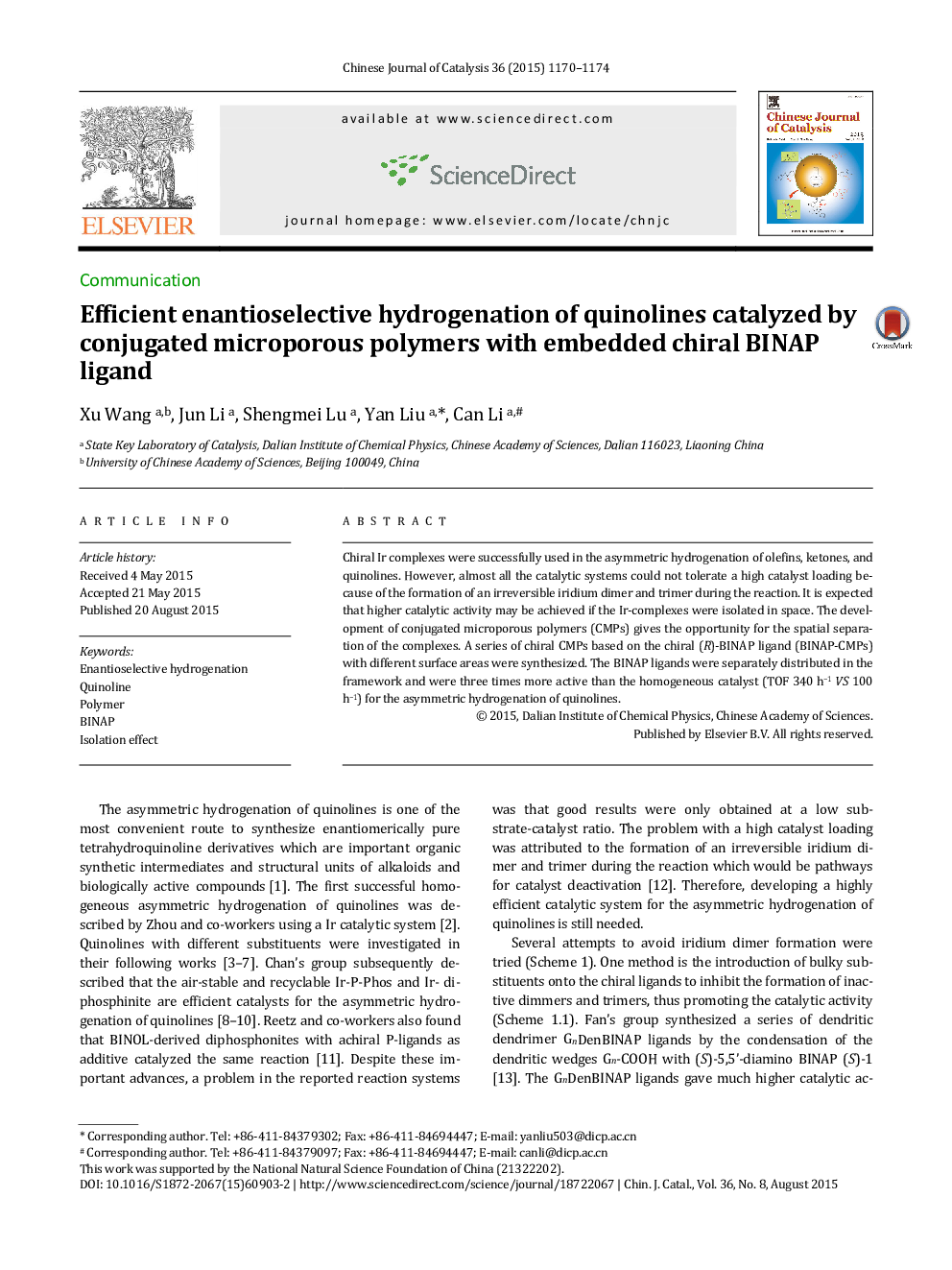| Article ID | Journal | Published Year | Pages | File Type |
|---|---|---|---|---|
| 59471 | Chinese Journal of Catalysis | 2015 | 5 Pages |
Chiral Ir complexes were successfully used in the asymmetric hydrogenation of olefins, ketones, and quinolines. However, almost all the catalytic systems could not tolerate a high catalyst loading because of the formation of an irreversible iridium dimer and trimer during the reaction. It is expected that higher catalytic activity may be achieved if the Ir-complexes were isolated in space. The development of conjugated microporous polymers (CMPs) gives the opportunity for the spatial separation of the complexes. A series of chiral CMPs based on the chiral (R)-BINAP ligand (BINAP-CMPs) with different surface areas were synthesized. The BINAP ligands were separately distributed in the framework and were three times more active than the homogeneous catalyst (TOF 340 h−1VS 100 h−1) for the asymmetric hydrogenation of quinolines.
Graphical AbstractA series of chiral BINAP-CMPs with different surface areas were synthesized which were three times more active than the homogeneous BINAP catalyst (TOF 340 h−1VS 100 h−1) for the asymmetric hydrogenation of quinolines.Figure optionsDownload full-size imageDownload as PowerPoint slide
